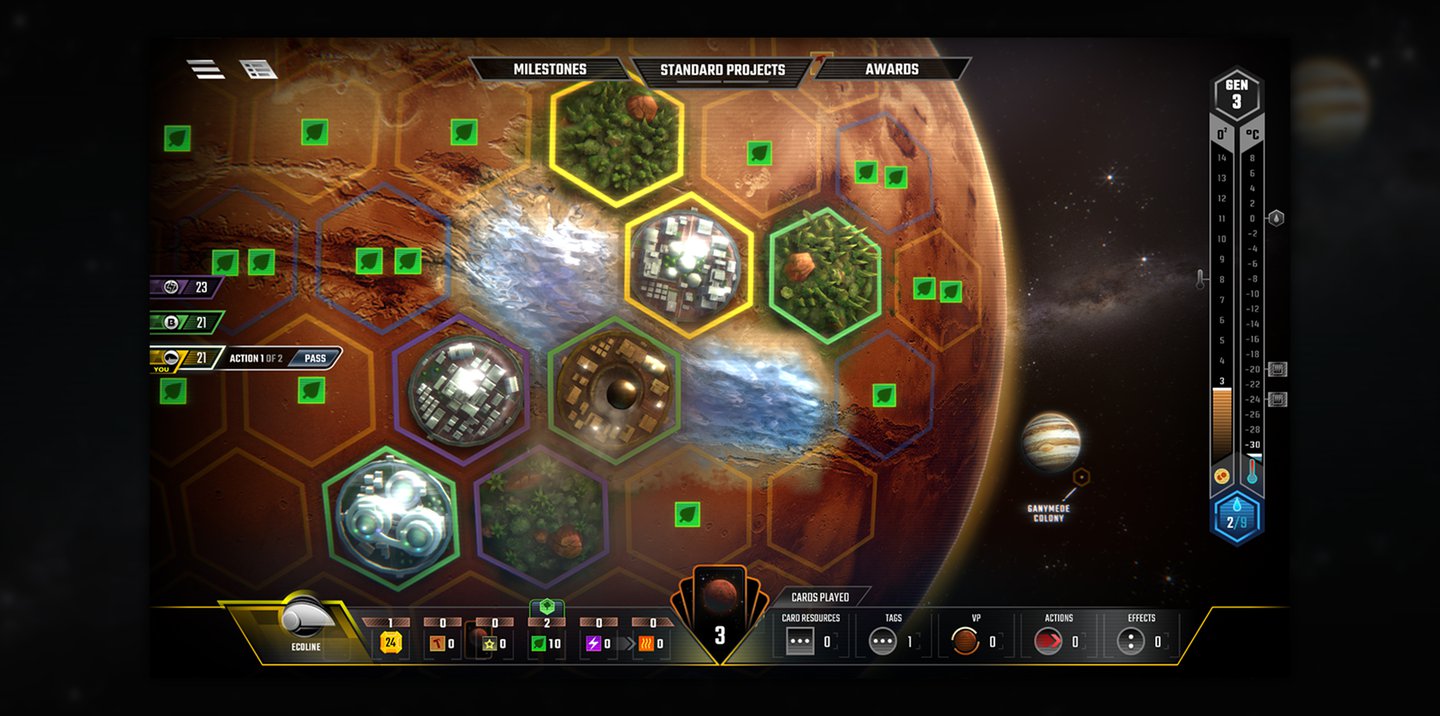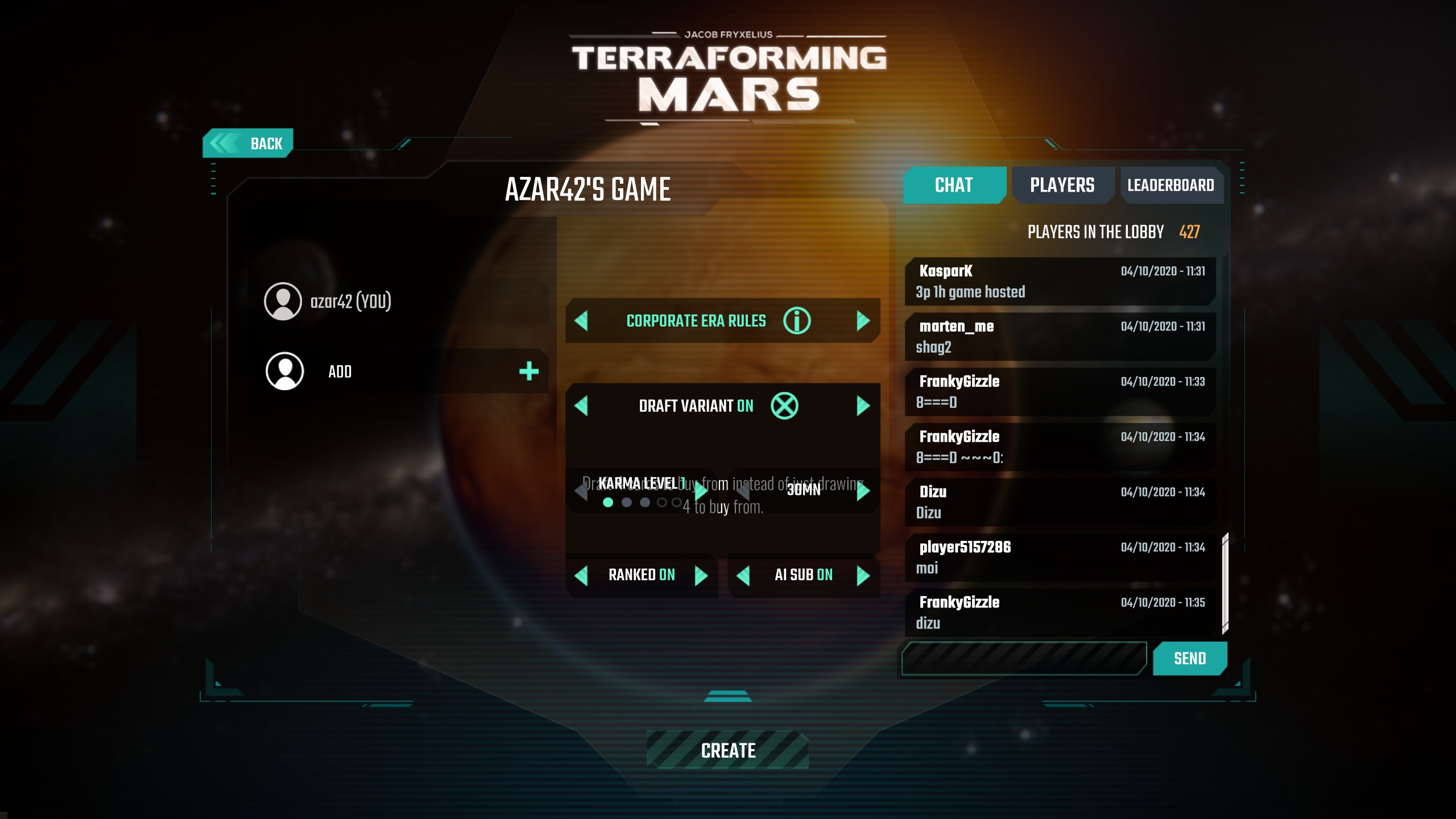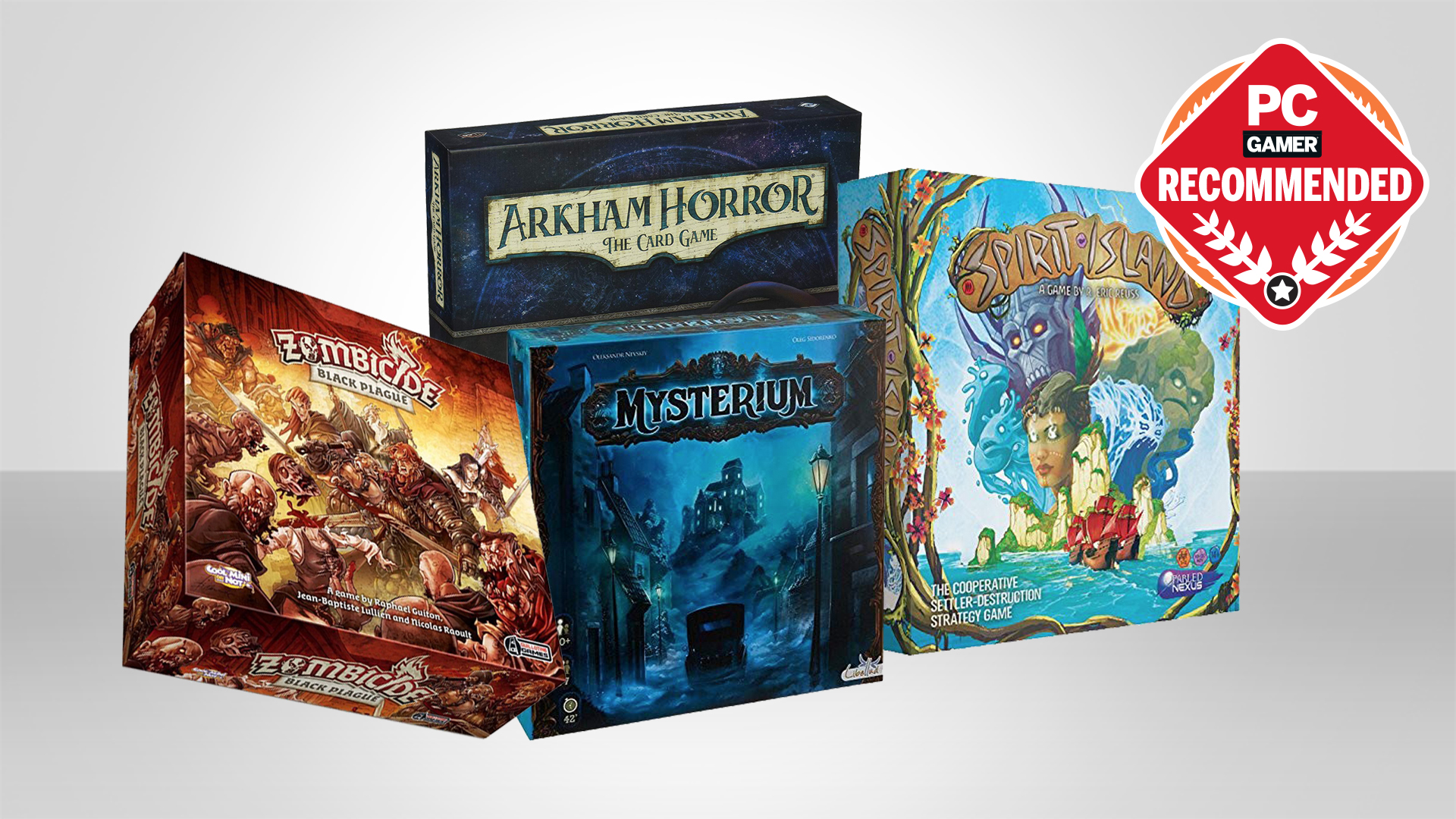This board game kicked us out and replaced us with bots and I'm still mad about it
Terraforming Mars, what were you thinking?

There's a particular emotion I think we've all experienced before, where something behaves exactly the way it's described, but in doing so defies common sense. It is simultaneously accurate, and yet deeply wrong, a frustrating gap between fact and reason. I call this experience the Gob Paradox, after this scene from Arrested Development that perfectly sums it up. Last weekend I ran into a truly baffling Gob Paradox in the digital board game adaptation of Terraforming Mars, and I'm still stewing on it.
Terraforming Mars is a cool board game—you control a corporation creating cities, oceans, and forests on the surface of Mars, and the game ends once the planet is sufficiently habitable. Each corporation has its own specialty, and most of the fun is in finding a strategy that takes advantage of your corporation's strengths. It's fun to focus on platinum production, then be able to pay for expensive late-game cards with all that valuable metal you've stockpiled.
The digital version is for the most part good enough, with some glaring UI issues that remain despite many updates since 2018. Sometimes a pop-up appears underneath other text instead; the account system is genuinely horrible and should just use Steamworks instead; some buttons give you no visual or audio feedback but do actually function. The biggest problem, though, is that some rules aren't explained, making them appear self-explanatory, and yet they are not. Gob Paradox alert level: Yellow.

When you create an online game in Terraforming Mars, you get these simple options. It's kind enough to explain the rules and draft variant, but I don't know what the hell Karma level is and there's no tooltip here. But a time limit and AI Subs I understand. The game lasts for X amount of time, and if a player drops out, they're replaced with an AI, right? That's how online games work, I thought. Obvious.
I was not prepared for how the Terraforming Mars developers thought these two options should interact with one another. After starting an online game with one friend, the first thing we noticed that seemed strange was how the time limit was applied. There wasn't a set duration for the entire game, but rather a set amount of time for each of us to take our turns. Gob Paradox alert level: Red.

The best board games
Best cooperative board games
The best ways to play board games on PC
The 5 best solo board games
Because I mostly chose and played my cards more quickly, as we got deeper into the game and chipped away at the hour time limit, my friend was clearly going to hit zero before me. After nearly two hours of play, it happened: He ran out of time. Terraforming Mars ejected him from the match and kicked him to the main menu without a "Here's how you did" screen or the option to extend his time. I expected the game to end. It did not. Terraforming Mars replaced him with a bot, which blasted through his turns far faster than a human player could while I used up my last five minutes.
Then my timer hit zero, and Terraforming Mars ejected me from the game, too. I was back at the menu. Neither of us won or lost. The game was not a draw. There was no evidence it ever happened. We laughed. We were pissed, because we didn't even get to see who'd been doing better when his bot took over, or what the final score was. Mostly, we were confused. Were those two bots now playing out an invisible game against one another out in the ether, terraforming in our names? If an AI wins a game in cyberspace and no one is around to hear its victory cheer, does it make a sound?
Keep up to date with the most important stories and the best deals, as picked by the PC Gamer team.
More importantly: Who thought this design decision made any sense? Gob Paradox alert level: Fucking busted.
I'll give the digital adaptation of Terraforming Mars this much: It made me appreciate how many games get their rules right and explain them thoroughly. Good rules clearly telegraph their intent and are designed so that everything interacts in common sense ways. That's how you avoid running afoul of the Gob paradox.

Wes has been covering games and hardware for more than 10 years, first at tech sites like The Wirecutter and Tested before joining the PC Gamer team in 2014. Wes plays a little bit of everything, but he'll always jump at the chance to cover emulation and Japanese games.
When he's not obsessively optimizing and re-optimizing a tangle of conveyor belts in Satisfactory (it's really becoming a problem), he's probably playing a 20-year-old Final Fantasy or some opaque ASCII roguelike. With a focus on writing and editing features, he seeks out personal stories and in-depth histories from the corners of PC gaming and its niche communities. 50% pizza by volume (deep dish, to be specific).

